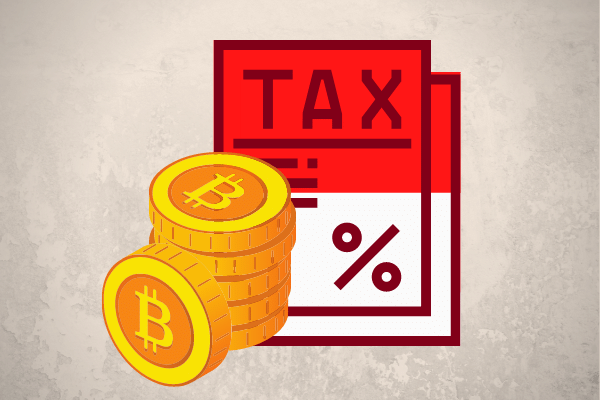A Crypto Tax Upon Your House
3 min read- Biden administration is rifling through the couch cushions to squeeze out any possible source of tax revenue
- Approach by the Biden administration to attempt reciprocity in sharing tax resident information appears somewhat naive, but move should still be welcome as to tax an asset class is to acknowledge and legitimize its existence
Let’s face it, cryptocurrency doesn’t have the most spotless reputation.
Despite just 0.34% of cryptocurrency transactions in 2020 being linked to nefarious activity, according to blockchain analytics firm Chainalysis, the use of digital assets to launder money and to evade taxes is usually top of the list of beefs that authorities have with the nascent asset class.
But what if there was a way for governments to tax cryptocurrencies? Would lawmakers be more open to embracing digital assets so long as they demanded and were paid their pound of flesh?
That’s precisely what the Biden administration appears prepared to do.
Hot on the heels of Biden’s financial regulators announcing that they would be working together to carve up issues of jurisdiction when it comes to cryptocurrencies, officials are now proposing the collection of data on foreign cryptocurrency investors active in the U.S.
The move is aimed at bolstering international cooperation to help in a broader crackdown against tax evasion.
Last Friday, the U.S. Treasury Department revealed in its “Greenbook” of revenue proposals a requirement for cryptocurrency brokers, exchanges such as Coinbase Global (+0.65%) and hosted-wallet providers, to provide information to the Internal Revenue Service or IRS on foreign individuals indirectly holding accounts with them.
The Biden administration is hoping that by providing that information to foreign governments, in exchange it can demand information on any U.S. individuals concealing cryptocurrency assets and dodging their U.S. tax liabilities by using offshore exchanges and wallet providers.
Part of a campaign by the Biden administration to strengthen tax enforcement to help fund the trillions of dollars of proposed longer-term spending programs, the proposal will still require congressional approval to be passed into law.
Biden officials have said that cryptocurrencies have served as a significant contributor to the growing tax gap – the difference between taxes owed and actually paid on time – an amount that IRS Commissioner Charles Rettig estimates may exceed US$1 trillion a year.
But Biden’s move to tax cryptocurrencies may only increase their allure, with no shortage of offshore locations more than willing to look the other way when it comes to assisting Americans in their tax planning goals.
By gathering information about foreign citizens trading in cryptocurrencies in the U.S. and using that as a carrot to entice offshore jurisdictions which thrive on customer privacy may provide little impetus to reciprocate, especially countries which are tax havens and have little to gain from receiving information about their own citizens who aren’t subject to tax anyway.
And much of the gains made from cryptocurrencies are capital gains, for which there are plenty of countries such taxes do not apply.
Where it may of course be valuable is where a foreign criminal uses U.S.-based cryptocurrency facilities to launder their ill-gotten gains, but why would anyone (criminal or otherwise) do that?
If nothing else, the offshore exchanges are also the most liquid, with the greatest volume of trading and the deepest markets, Americans looking to trade offshore would use those, or better yet, decentralized exchanges which are governed entirely by smart contracts, and brook no AML or KYC.
Despite the gaps in Biden’s approach to tax cryptocurrencies, the move should still be welcome, because nothing quite says legitimacy and recognition like a tax upon your house, after all, that’s how the Feds got Al Capone.
The post A Crypto Tax Upon Your House appeared first on SuperCryptoNews.








